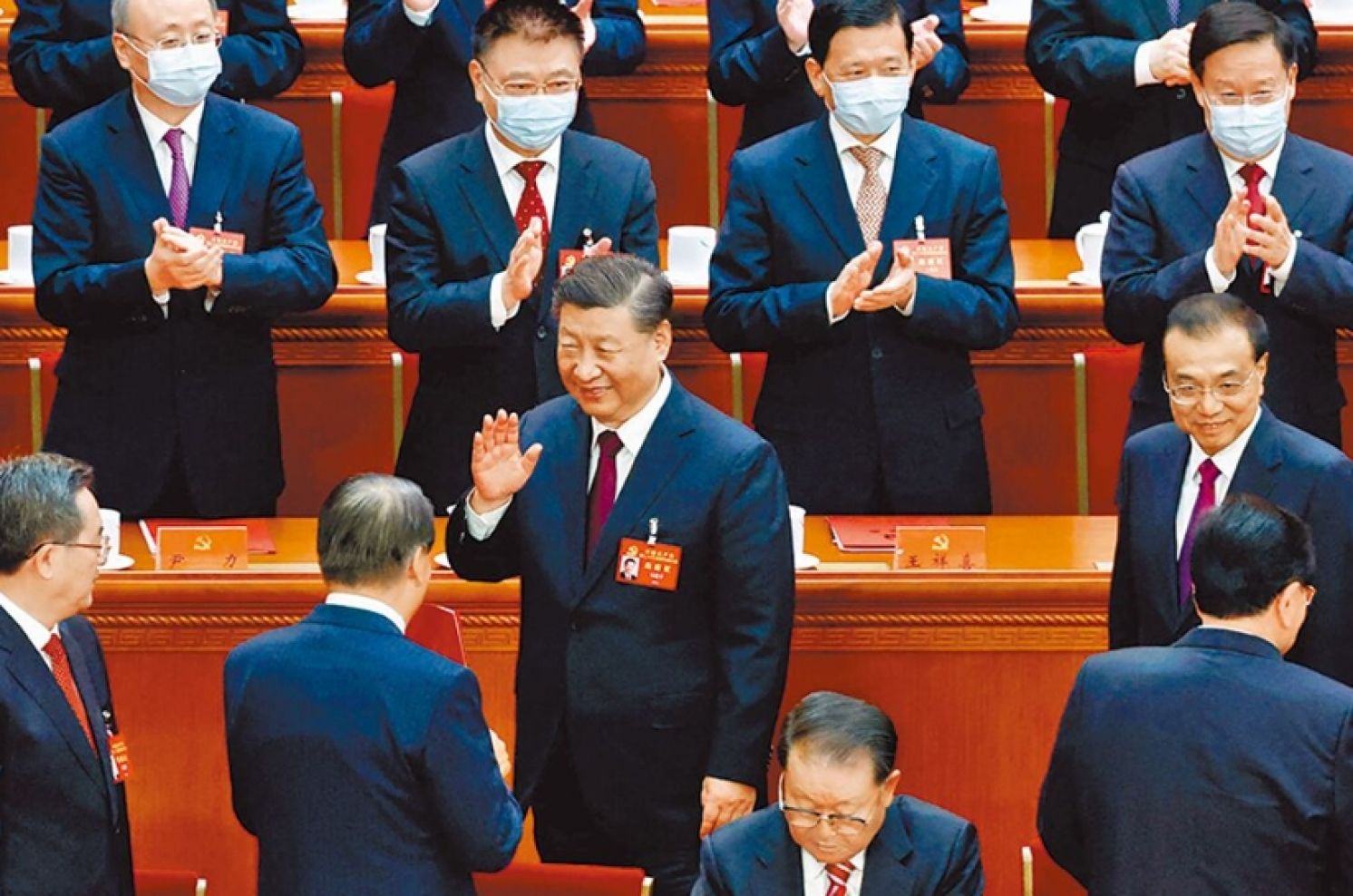
Two New Elements of Personnel Changes at the 20th National Party Congress
By Su Yung-lin
China Times, October 24, 2022
After several rounds of guessing by the international media, mainland China’s new Politburo Standing Committee, a seven-member body that will rule China for the next five years, was finally appointed by the 20th National Congress of the Chinese Communist Party. The converging international attention on the new personnel appointments reflects a deep concern over China’s political, economic and social development in the future. It is worth noting for Taiwan that there are two obvious elements in the new mainland Chinese leadership.
Firstly, the new Politburo Standing Committee has a stronger presence of members with knowledge of Taiwan. The most noteworthy is Wang Huning, with the nickname of “brains behind the throne,” who moved up to the fourth position and will likely to become the chairman of the Chinese People's Political Consultative Conference. Wang is a party-political theorist who has masterminded the theories such as the “Three Represents,” “Scientific Outlook on Development,” “the Xi Jinping Thought,” and “Chinese Path to Modernization.” Since Taiwan has the most abundant and mature experience in practicing democracy in all of the ethnic Chinese societies, Wang, as a scholar or a staff member, should have his own continuous thinking.
Wang has long expressed his disbelief in the American-style democracy and believes it is certain to fail from a theoretic perspective. He was the coach of the debate team of Fudan University in the late 1980s and early 1990s and had the opportunity to interact and exchange with the academic circles in Taiwan. But times have changed. At the time most people in Taiwan identified themselves as Chinese and the direct election of the president hadn’t happened. Now Taiwan’s political identity has changed drastically. Although Taiwan’s political and economic systems have not been completely Americanized or Westernized, it is unclear whether the remaining Chinese cultural heritage or elements will benefit Wang’s thinking of Taiwan’s role in the “Chinese path to modernization.”
Many new members of the Politburo Standing Committee are from Shanghai, Zhejiang and Fujian areas, and during their careers in different local governments the cross-strait exchanges between mainland China and Taiwan were at its peak; therefore, many of them have the experience in dealing with the political circles, high ranking officials and the grassroots of Taiwan. As a result, the new Politburo Standing Committee is probably the Chinese leadership most familiar with the situation in Taiwan. Take Cai Qi, former Beijing party chief and the new head of the General Secretariat, as an example, we can still find his diary on the Internet depicting his visits to Kaohsiung, Taichung, Taipei and Keelung in 2012. Cai expressed positive attitudes towards Taiwan’s development in agriculture, industry, religion and community service in his diary.
Besides knowledge about Taiwan, if we take a broader view of the entire new politburo, we will find Beijing has transformed from an old “state run by engineers” to a new “state run by scientists.” To a certain degree it also shows the long recognized Chinese tradition of the elite selection system not only has survived the Xi era, but also been further reinforced. For example, Li Ganjie is an expert in nuclear physics; Chen Jining is a professor of environmental engineering; Yin Li is an expert in medical science and public health; Zhang Guoqing, Liu Guozhong, Ma Xingrui and Yuan Jiajun all share similar military-industry system background, the latter two are leading experts in aerospace.
The phenomena that “the state is run by scientists” who are Chinese Communist bureaucrats born in the 1960s is no doubt the accumulated achievement of 40 years of opening up and reform in mainland China. Will this achievement give Taiwan’s politics, overflowing with “Thesis Gate” at the moment, a chance to pause and reflect?
From: https://www.chinatimes.com/newspapers/20221024000348-260109?chdtv